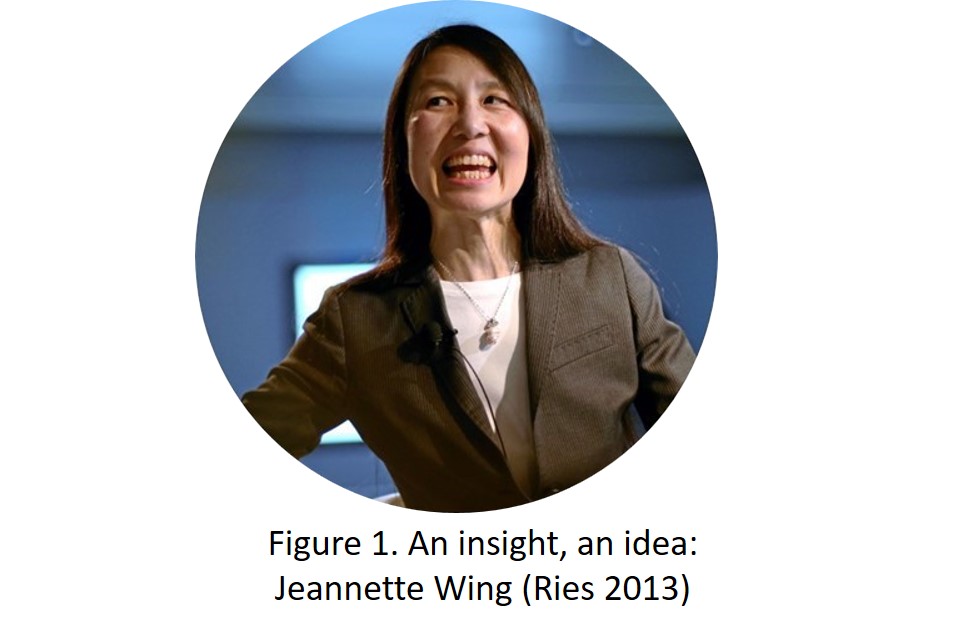
Jeannette M. Wing
A female computer scientist—Jeannette M. Wing is my role module. Jeannette not only gained recognition in academic cycles but also reformed the image and position of Computational Thinking in the education sector. She graduated from the Massachusetts Institute of Technology (MIT) in 1979 and made herself the first Asian female Executive Vice President at Columbia University in 2021 (Google Sholar [no date]). Besides her outstanding academic background, Jeannette's biggest contribution is from reviving and marketing Computational Thinking in the educational system (Tedre and Denning 2016, p.124-125). The public often misunderstands her the first scholar who defined Computational Thinking. However, Computational Thinking as a term was first proposed by Seymour Paper as early as 1980 (Tedre and Denning 2016, p.127). As Jeannette (2006) stated in the ACM journal, “Computational Thinking is a fundamental skill for everyone, not just for computer scientists”. Educational advocates of this argument incorporated Computational Thinking courses in students' curriculums and made progress over years. Although critiques pointed out that Jeannette's Computational Thinking teaching system lack explicit measurements on the extent of students' development than students not taking Computational Thinking courses, her influence in expanding the computer audience is indispensable (Tedre and Denning 2016, p.120-125).
Computational Thinking has become one of the most critical competence in 21st century (Grover 2022). Our research, work and societal development are all concerned with problem-solving. Jeannette inspired the public's interest to Computational Thinking, her article 'Computational Thinking (2006)'has been cited 9966 times (Google Scholar [no date]). Moreover, Computational Thinking has been fully developed over past years since 2006, particularly in US and European countries, even in Asian countries, such as Singapore and China.
As a cross-field scholar, Jeannette's innovative minds have influenced generations' perceptions of the image of computer science. As Jeanette stated (2006), “We especially need to reach the pre-college audience, including teachers, parents, and students.” As a result, Computational Thinking has been applied in several fields, from biology and economy to the arts. Even in World War II, before Computational Thinking was officially proposed, Turing already use the Computational Thinking mind to create the first intellectual computer to decode and encrypt documents.
